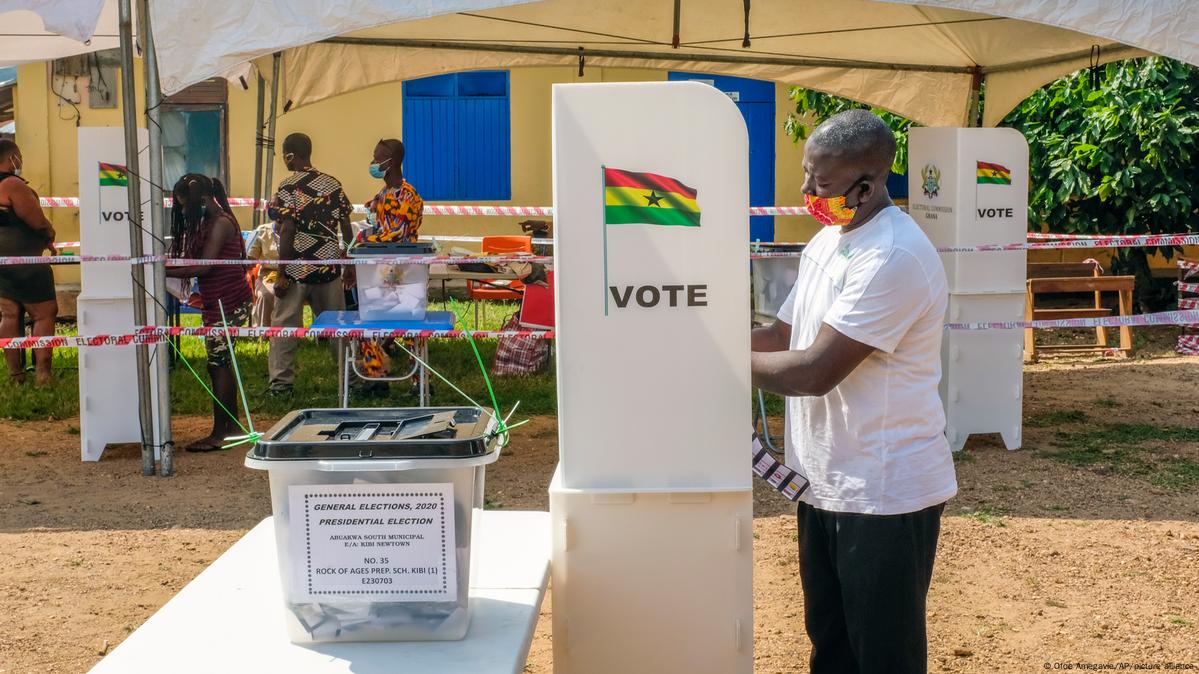Ghanaians head to the polls in a tightly contested presidential election

Ghanaians began casting their votes early Saturday in a closely contested presidential and parliamentary election that has dominated headlines for weeks.
The race pits Vice President and former central banker Mahamudu Bawumia against opposition leader and former president John Mahama, in what analysts describe as one of the nation’s most competitive elections in recent history.
Economy Takes Center Stage
Economic concerns have loomed large over the campaign period.
Ghana, Africa’s leading gold producer, is navigating a fragile recovery from a severe economic crisis that necessitated a $3 billion bailout from the International Monetary Fund (IMF).
The outcome of the election could determine the trajectory of Ghana’s economic reforms and policies.
President Nana Akufo-Addo, who is stepping down after two terms as mandated by law, leaves behind a mixed legacy, particularly on economic management.
Polling stations opened at 7:00 am local time and are expected to close at 5:00 pm, with results anticipated by Tuesday.
“We want change because the economic situation is very difficult,” said James Nsiah, a retired police officer, as he waited to vote in Accra.
To ensure the integrity of the election, the government temporarily closed all land borders from Friday evening until Sunday.
Key Candidates and Their Promises
Mahamudu Bawumia, representing the ruling New Patriotic Party (NPP), is campaigning under the slogan “Break the 8,” a bid to extend the party’s time in power beyond the typical two-term limit.
A former deputy governor of the Bank of Ghana, Bawumia has distanced himself from critiques of President Akufo-Addo’s administration, emphasizing his vision to strengthen the economy through digitization, free education initiatives, and improved healthcare.
John Mahama, the flagbearer of the National Democratic Congress (NDC), is seeking a return to power after serving as president from 2012 to 2017.
Campaigning on promises to “reset” Ghana’s economy, Mahama has pledged to create a “24-hour economy” to boost productivity and job creation.
However, he faces criticism for the rolling power outages that plagued his tenure.
Regional Dynamics and Other Issues
Both candidates hail from northern Ghana, a region traditionally supportive of the NDC but increasingly fragmented in recent years.
Political analyst Tutu Boahen noted that the intense campaign and divided loyalties make this election one of Ghana’s closest yet.
Beyond the economy, illegal gold mining and its environmental and social repercussions have emerged as critical issues.
While the outgoing government vowed to tackle this challenge, the problem has worsened amid surging gold prices.
Additionally, Ghana, like its neighbors Côte d’Ivoire, Togo, and Benin, faces growing security risks from jihadist conflicts in the Sahel region, raising concerns about stability in the north.
As the nation votes, all eyes are on whether the outcome will uphold Ghana’s reputation as a beacon of democracy and stability in West Africa.
About The Author
dailymailafric
I am an avid African news observer, and an active member of Daily Mail Africa.
I’m Passionate about staying informed on diverse topics across the continent,
I actively contribute to publishing on political, economic and cultural developments in Africa.



